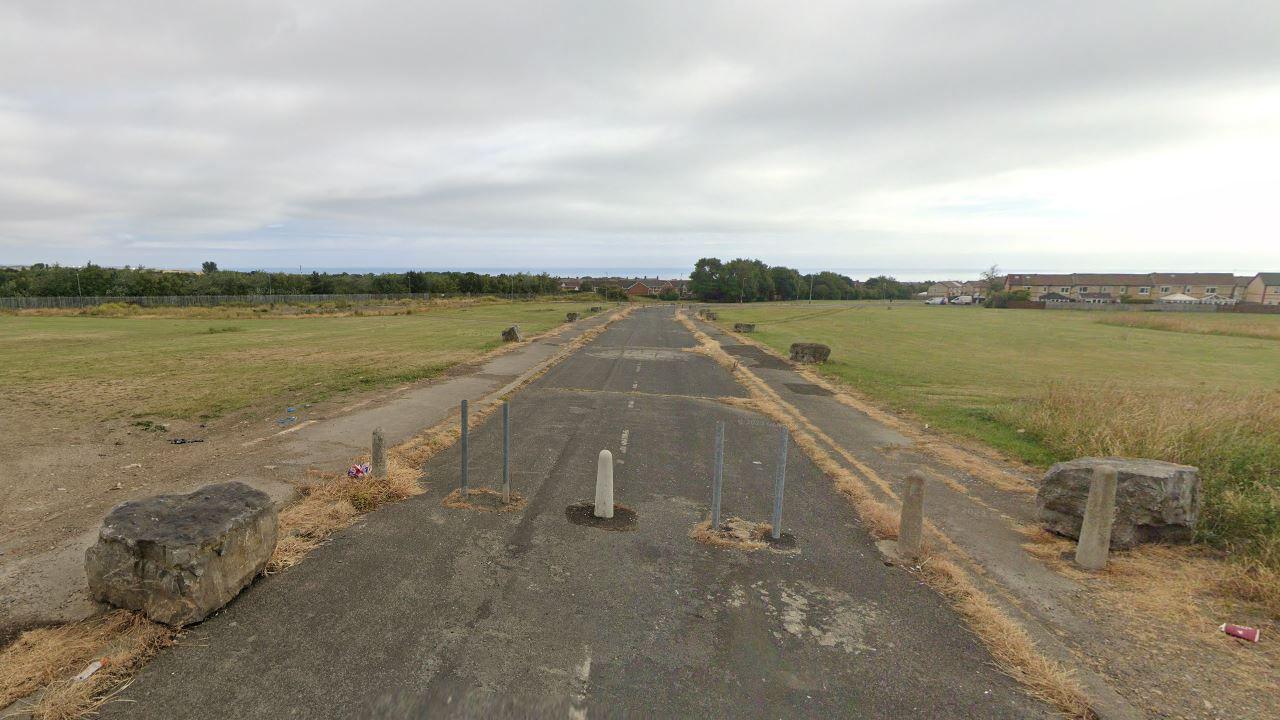'Gangs and unrest' behind rise in vehicle fires
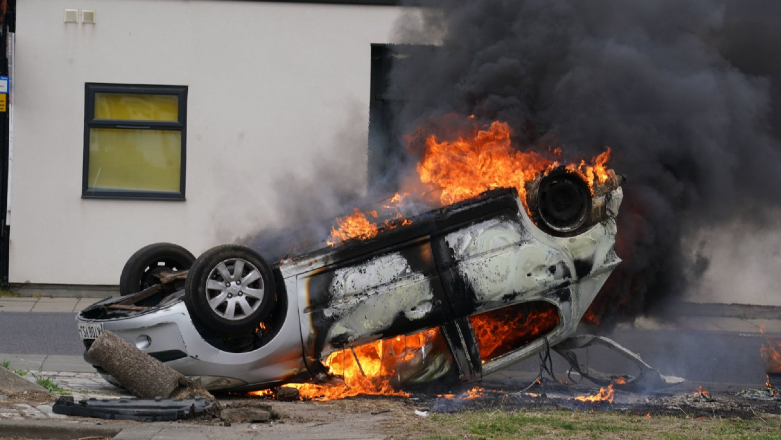
Those responsible are often young people, according to Durham Constabulary
- Published
Crime gangs and "civil unrest" are contributing to a stark rise in suspected deliberate vehicle fires, experts suggest.
A BBC investigation found that last year fire crews in the north-east of England were called an average of more than 20 times a week to vehicles being set alight.
Since records began in 2010-11, the region has seen a 36% rise in the number of such incidents, compared to a 50% drop across England.
In County Durham, the figure almost trebled.
Durham City MP Mary Kelly Foy said the figures were worrying but "not entirely surprising" given the impact of high levels of deprivation and inequality on crime rates in the region.
'Retaliation and intimidation'
Organised crime, deprivation and community attitudes are among social and economic factors that could be contributing to the regional increase, the National Fire Chiefs Council (NFCC) said.
They were among the issues identified as "areas of interest" when the region's fire services commissioned academics from Durham and Sunderland universities to investigate the problem.
NFCC's lead on arson and anti-social behaviour Robin Turnbull said services were aware of organised criminals setting vehicles on fire "as a form of retaliation or intimidation".
Mr Turnbull, who is also area manager at Cleveland Fire Brigade, said personal vendettas and inter-community disputes also play a part.
"We also have very localised periods of civil unrest where vehicles are targeted by youths or gangs during anti-social behaviour," he added, speaking before the anti-immigration riots that took place across the country earlier this month.
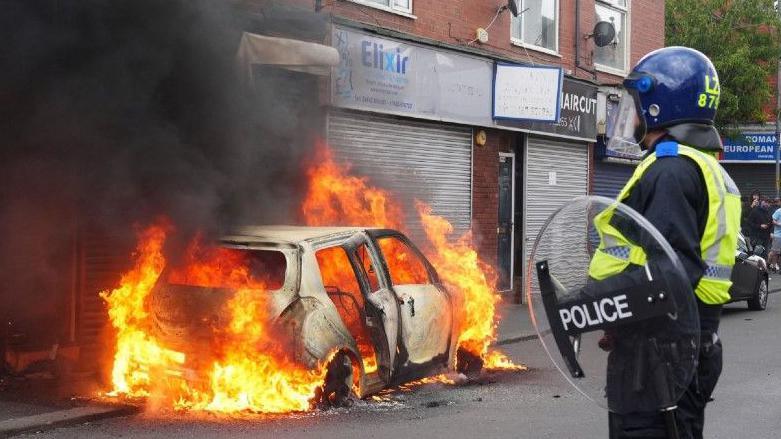
Cars were set on fire by rioters during a day of violent disorder in Middlesbrough
Figures published in July predate the riots, which saw cars torched in areas including Middlesbrough and Sunderland.
Having a vehicle set alight can cause "huge hardship" to owners, according to charity Victim Support.
Assistant director Rachel Almeida said: "Victims are not only losing their vehicle, but in many cases their ability to get around, to go to work or school, visit family or attend medical appointments.
"It can rob people of their sense of safety and security."
Mr Turnbull said the issue caused "significant frustration" for fire crews and communities.
What does the data say?
According to BBC analysis of Home Office data, fire services across England responded to about 7,400 suspected deliberate vehicle fires last year, 6% lower than the year before and down from more than 14,600 recorded in 2010-11.
Just three services saw a rise in that time, all of them based in the North East.
Across the region, the figure fell slightly year on year, with seven fewer such fires recorded.
Cleveland Fire Brigade and Tyne and Wear Fire and Rescue Service saw a drop year on year, but experienced a rise of 15% and 13% respectively against 2010-11 figures.
Across Northumberland, there were five fewer such fires attended in 2023-24 than in 2010-11, but eight more year on year.
Last year, Durham's fire service recorded its highest number of suspected deliberate vehicle fires since records began, with 356 such incidents attended, up from 264 the year before and far higher than the 127 logged 14 years ago.
County Durham and Darlington Fire and Rescue Service's (CDDFRS) group manager Michael Pearson said the service was "not complacent" about the problem.
He said CDDFRS crews were working with other authorities and schools to tackle dangerous behaviour, assist with investigations and support prosecutions of those who set fires.
Supt Neal Bickford, of Durham Constabulary, said deliberate fires were often started by young people, adding the force works closely with CDDFRS to educate children about the dangers.
But Labour's Ms Kelly Foy said the only long-term solution to offending is investment in the region, its services and people.
Follow BBC North East on X (formerly Twitter), external, Facebook, external and Instagram, external. Send your story ideas to northeastandcumbria@bbc.co.uk.
More stories from BBC North East and Cumbria
- Published18 August 2023
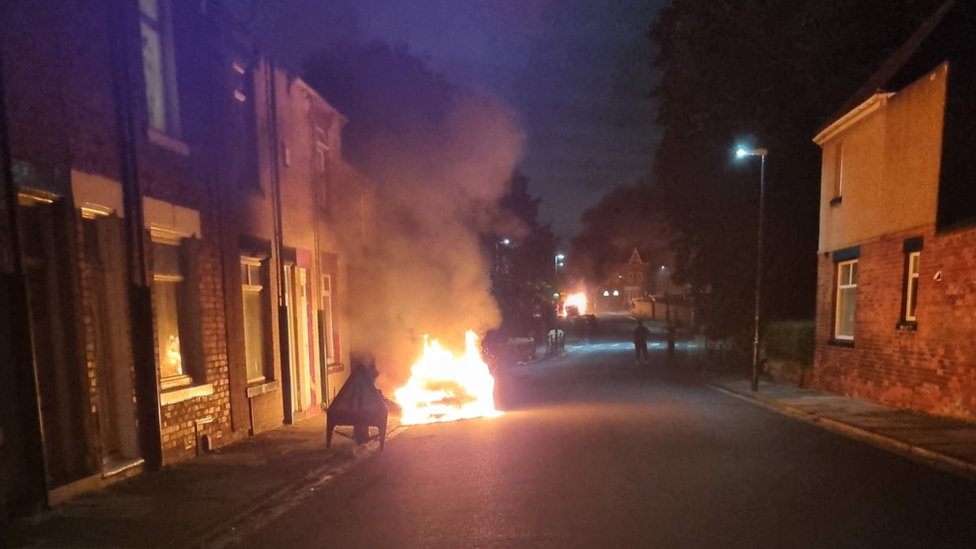
- Published1 August 2024
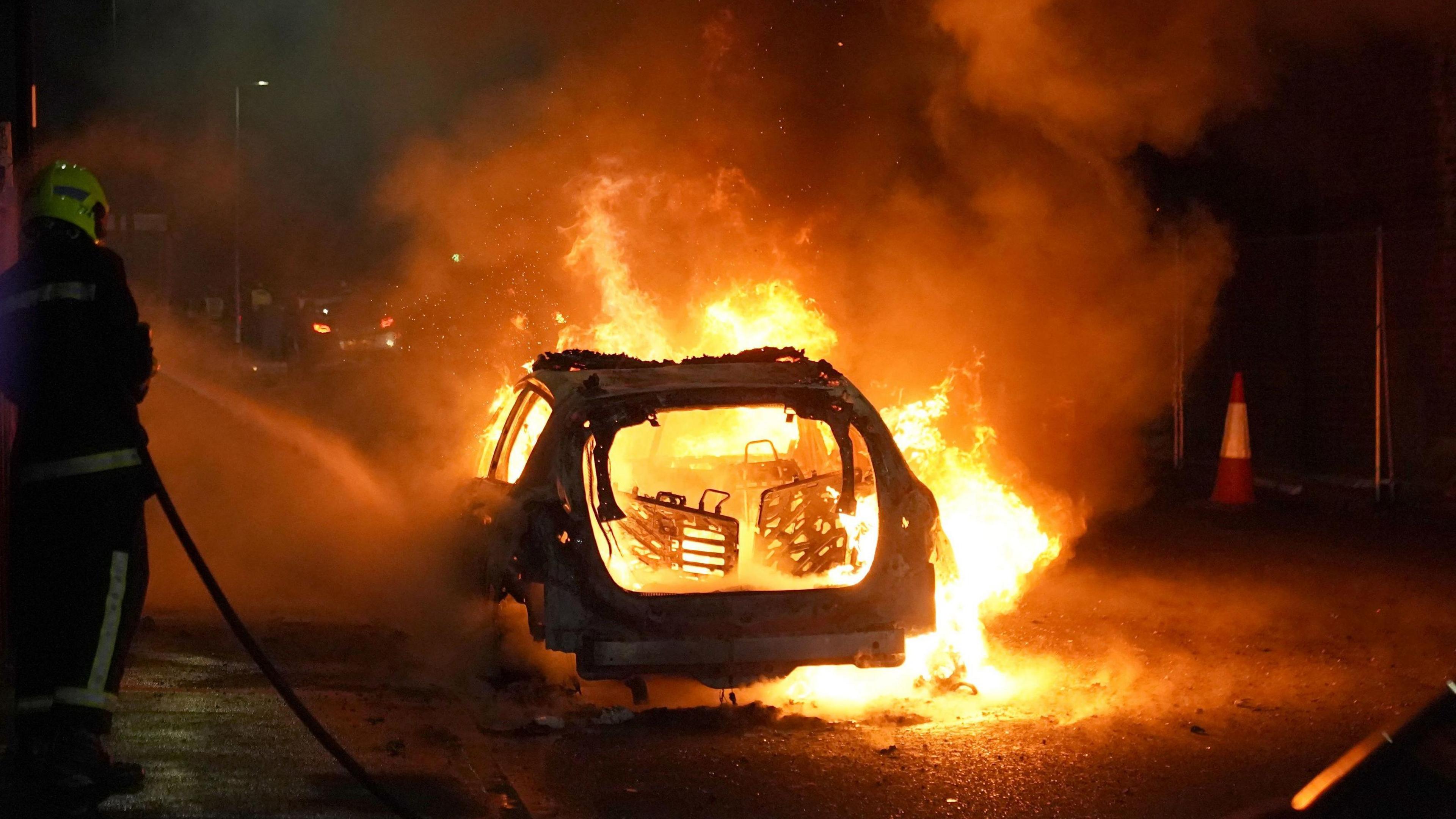
- Published29 April 2024
